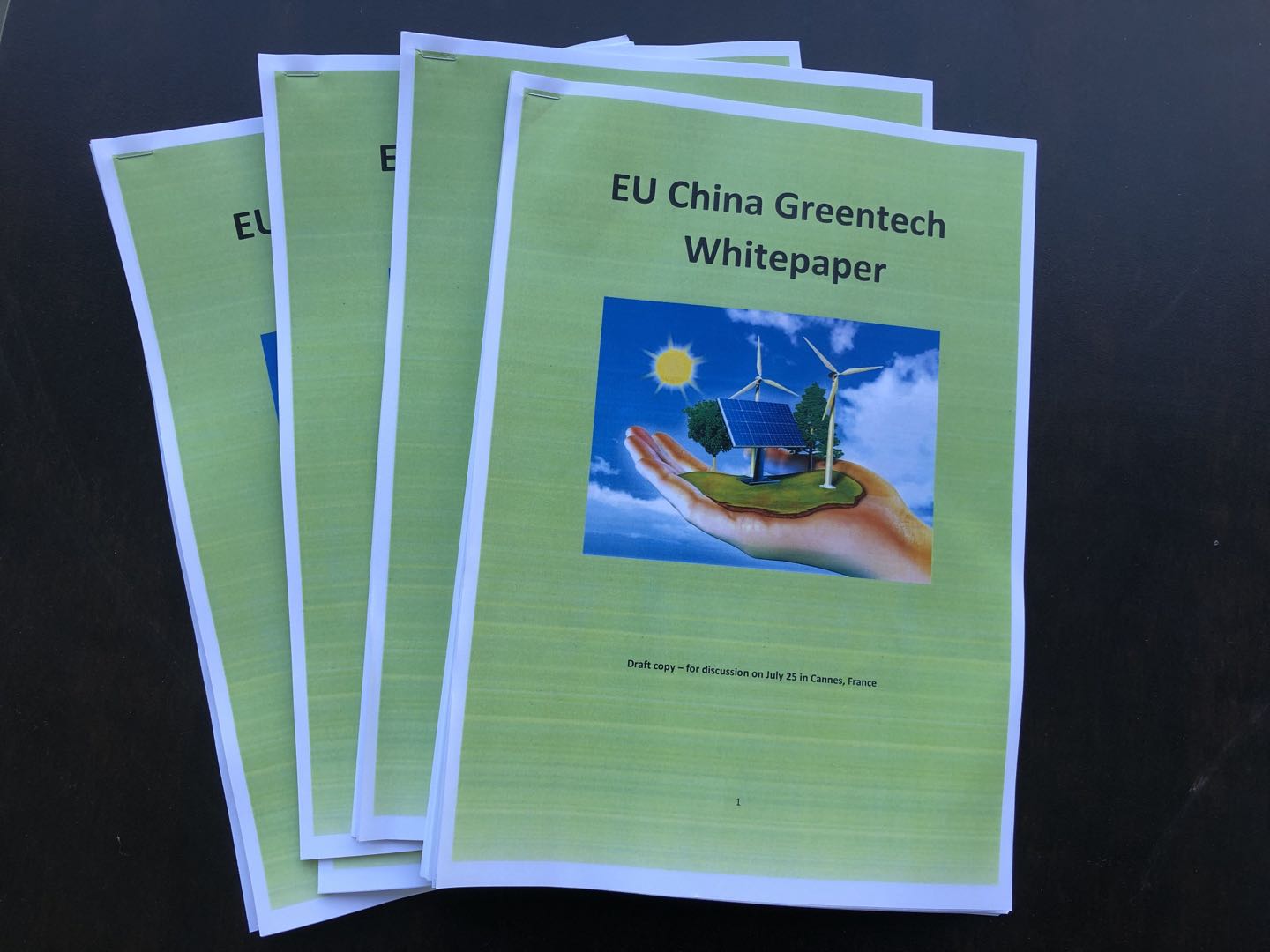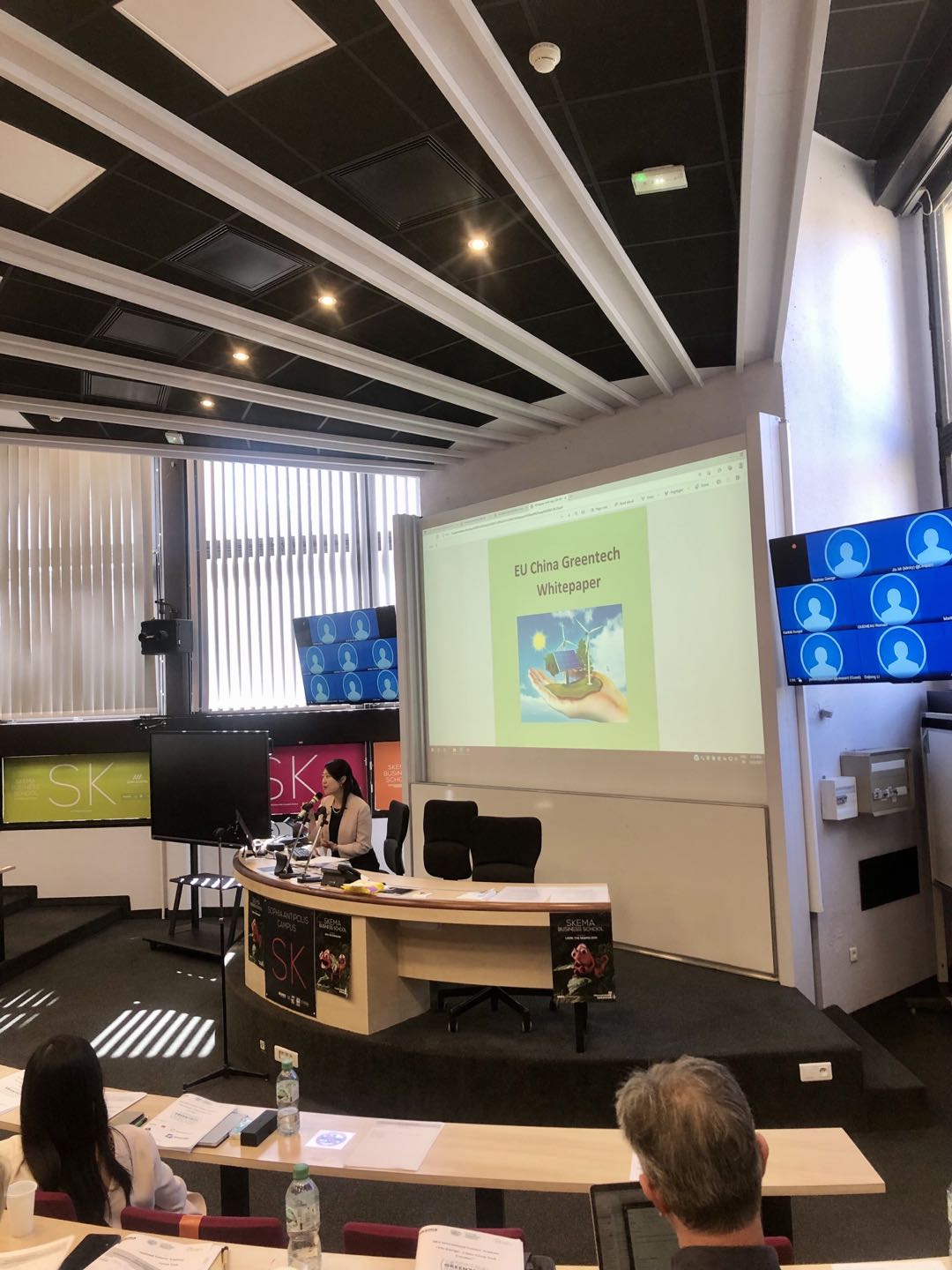
Venturing Outside the INSEAD ‘Bubble’ Through an Independent Study Project
If I once imagined INSEAD’s academic courses to be intense, I must admit that learning by doing real-life projects is an even more demanding endeavour, but the learning and fulfilment is absolutely phenomenal.
I recently took up an Independent Study Project (ISP), with the support of two INSEAD professors – Professor Lucie Tepla and Professor Claudia Zeisberger. My project is writing a research report exploring how China and the EU can collaborate to accelerate towards fulfilling the zero-emission goal through the combined effort of policy makers, green technology companies and investors. The idea came partly from the fact that I truly enjoyed the INSEAD elective Sustainable Finance, led by Professor Lucie Tepla. More importantly, it came from conversations I had with Helen Wang, CEO of the accelerator BGTA, whom I knew from my former career as a journalist.
As Helen and I are both passionate about green technology’s impact to help the world accelerate towards the zero-carbon goal, we decided to write a white paper, which aims to map out the significance and future direction of the EU China Greentech Corridor, the first ever attempt to bring together public and private sector players to accelerate the technology development and investment in the green technology space. In essence, that puts ideas and good intentions into practical collaboration.
Helen and I co-authored the report, which gathered a substantial amount of primary and secondary resources.
I also felt truly grateful for the calls I had with Professor Lucie Tepla and Professor Claudia Zeisberger, both of whom gave me suggestions on the paper’s direction and ideas that I need to consider. (Normally INSEAD students’ ISP projects can be converted into academic credits. I didn’t take academic credits in the end as the timing of our report didn’t fit in with INSEAD’s academic grading deadline, but nevertheless I felt grateful for the experience).
More specifically, I felt empowered and enlightened when I applied some of the lessons from my Sustainable Finance elective course into practice for the paper’s writing. I also felt pleasantly surprised upon realising that I was able to think in a more logical and informed way when conducting research – thanks to a year of intensive learning at INSEAD.
In the process of writing the report, Helen also introduced me to a number of her industry contacts, whom I had follow-up in-depth conversations with. I had an engaging conversation with Young-jin Choi, Head of Research of Impact Investing at Phineo gAG and European Climate Pact Ambassador, who has very kindly shared his thoughts and insights about the future of China EU green technology collaboration. Young-jin also shared with me many research reports, especially in the area of policy, which I read through with great interest and shaped some insights into the research report.
Through Helen’s introduction, I also met with Lewis Knight, and Philippa Hoy, Strategic Director and Operations Manager of Oxfordshire Greentech respectively. Lewis and Philippa shared with us the story of Oxfordshire Greentech, a business network doing incredible work to help grow the low-carbon economy in Oxfordshire. We found Oxfordshire Greentech to be a leading example of public and private partnership towards a zero-carbon future, which provides inspiration for policy makers in China and globally. We featured Oxfordshire Greentech as a case study in the research report, and felt grateful for the opportunity to really showcase how critical it is for public and private sector players to collaborate to ensure one region meets its carbon reduction goals while stimulating thriving economic activity.
The highlight of the experience for me was presenting the report to international tech entrepreneurs and investors at the Sophia Business Angels’ International Venture Academy on 24th - 25th June 2021 in Cannes.
Hosted by the Sophia Business Angels, and partnering with BGTA, this flagship start-up pitch and coaching event featured 10 chosen green technology start-ups, which are coached by seasoned investors around the world, from London, European tech hubs and Shanghai.
Our white paper was very well received at the event, in particular because it is truly relevant for the green technology companies and investors attending the pitch event. It opened up opportunities to have fascinating discussions at the pitch event with other participants, who also shared their views and insights on this topic, which became useful insights for us as we shape the next version of the report in the future.
The experience of co-authoring this report and presenting it at an event full of entrepreneurs and investors was also an opportunity for me to venture outside the INSEAD ‘bubble’ momentarily to assess how my classroom learning experiences shape my ability to conduct impactful and meaningful projects in the real world, and take real-world reflection back into the classroom for further discussion.
As such, I would really recommend the ISP model for future INSEAD students, as the value one derives from the experience is just as much as academic elective classes.






